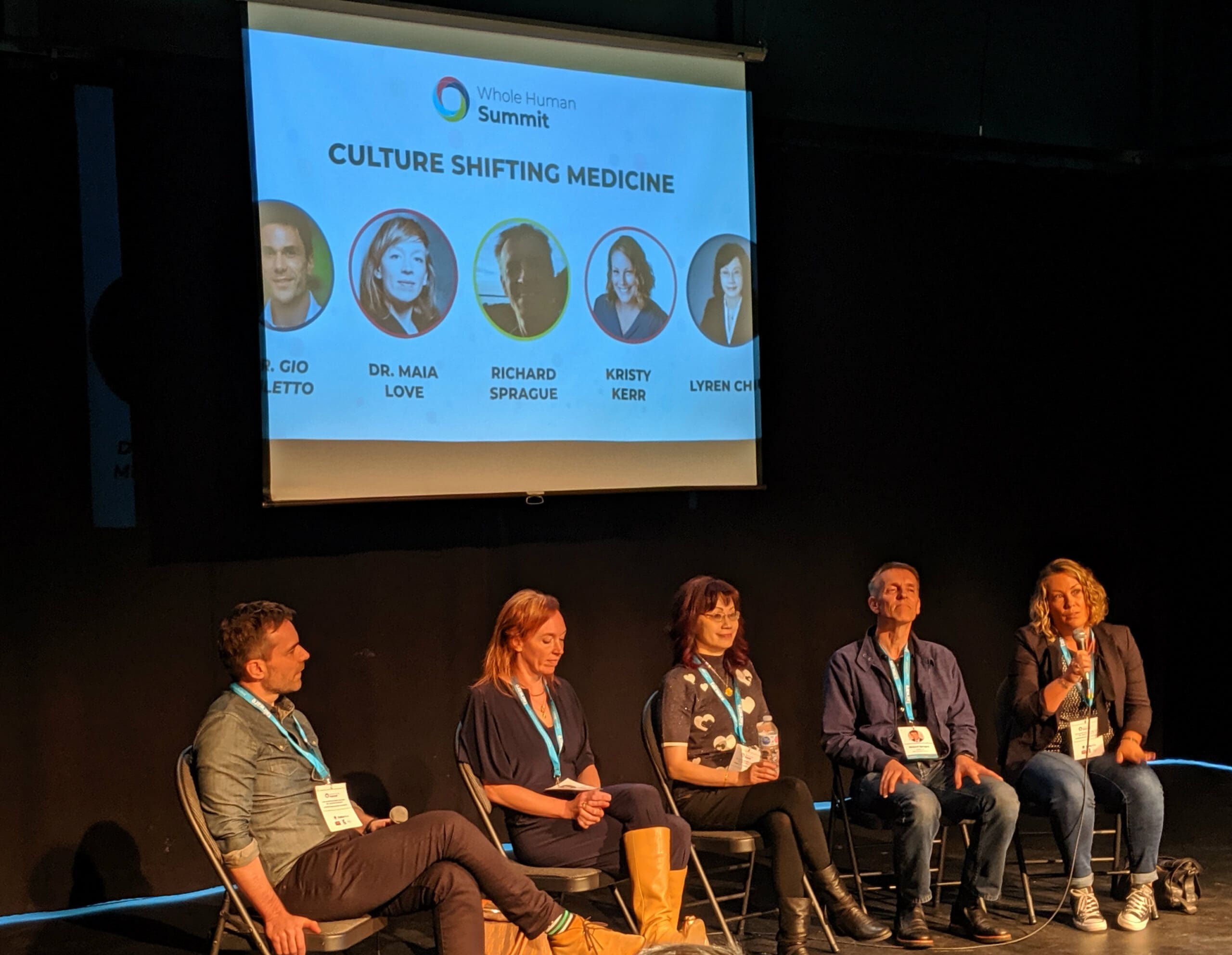It’s Kristy here, ED of the BCCDC Foundation, and for this month’s Decoding Public Health piece, I’d like to turn things to you, our readers, and get you thinking about a few things…and let’s see if we can start a conversation about health.
I was invited to present at the Whole Human Summit recently, which is a unique take on a a health conference – essentially un-conferencing a traditional format to encourage more engagement and dialogue – I was asked by Pam Lincez, Whole Human Foundation, to be part of a panel on “Culture Shifting Medicine”. At first I saw the word ‘medicine’ and asked if I were the right person for this panel. I am not a clinician, and am not an expert on ‘medicine’. But then I thought about it and in fact it is exactly what we talk about at the Foundation every day. It is our battle cry – we need to shift the conversation about health and put our focus on the healthy human – and this is the culture shift of medicine.
So here’s a little food for thought: What do you think our healthcare system, and the health of you, your family, your community, would look like if we put more emphasis on creating good health, and less emphasis on fixing problems once they already exist?
Obviously ‘healthcare’ is extremely important, and when I talk about shifting the way we think about health, it is not at the expense of having an excellent healthcare system. Rather, it’s to encourage us as a society to think about creating good health and taking the emphasis off the reactionary tactics of solving illness and injury. Instead, we need to be proactive, move upstream and start addressing the source of issues. We need to create the healthy human.
This means we give children the best start. It means that we focus more efforts on prevention, health promotion, and health equity. It means we think about the source of problems, not just solutions, and we address the root causes of the things that create those injuries, illnesses, unsafe situations, unhealthy environments, and importantly inequities. Because health is created outside the healthcare system.
If we put more emphasis upstream, we would as a result improve our healthcare system. Think about it–removing burden from our system can only allow the system to thrive and be able to better care for those who do need it. Over time the burden grows, why would we wait to address it?
According to the World Health Organization, poverty is the single largest determinant of health. For a wealthy country, Canada does not fare well, especially when it comes to how many of our indigenous children live in poverty. It is unacceptable.
Data shows that providing safe and secure housing to people can improve health outcomes. Yet we all too often expect people to get control of their health when they don’t have the basic things we have rights to, like shelter, food, a living wage. Yet if we provide that housing first, we can support people to achieve their best health.
Those are just a couple examples.
It is time to start thinking about the determinants of health that are outside of the healthcare system. Indeed other determinants remain important–individual lifestyle and behaviour and genetics are slices of the health pie chart–yet it is the social, physical and environmental factors that we need to better address to improve the health of our population.
So what are some things we all can do? We at the Foundation are trying to be creative in how we communicate with and reach people. Our anti-stigma campaign in partnership with LifeLabs is a good example. We’re doing things like this, talking and sharing and encouraging dialogue. We’re working on projects and campaigns that have a health equity lens, we’re developing communications that promote this message, and we’re aligning with partners who share our interests and goals.

Try thinking about creating good health and what that actually means for you individually, for your community, for your family, for Canada. Do some research–there is lots of great info on the social determinants of health and why health doesn’t equate to healthcare. We can’t shift the culture of medicine alone.
So thanks to the Whole Human Summit for encouraging the dialogue around a culture shift, and allowing my voice to be heard. Now I encourage you to use your voice. Use your vote. Talk to your friends and family. We all have a role to play in creating and fostering good dialogue. Join us in our battle cry. Let’s shift the culture. Let’s #ActivateHealth.
